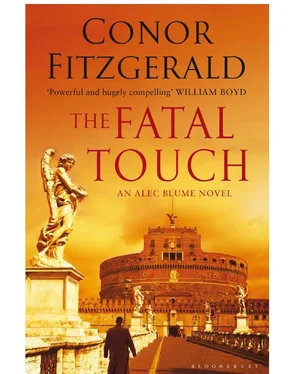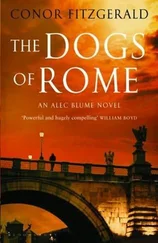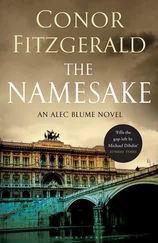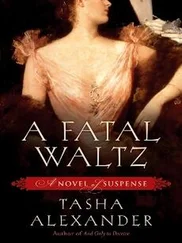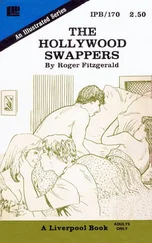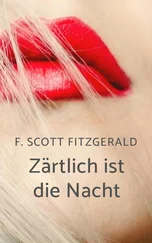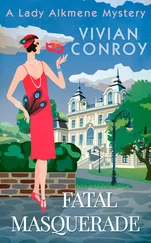Conor Fitzgerald - Fatal Touch
Здесь есть возможность читать онлайн «Conor Fitzgerald - Fatal Touch» весь текст электронной книги совершенно бесплатно (целиком полную версию без сокращений). В некоторых случаях можно слушать аудио, скачать через торрент в формате fb2 и присутствует краткое содержание. Жанр: Полицейский детектив, на английском языке. Описание произведения, (предисловие) а так же отзывы посетителей доступны на портале библиотеки ЛибКат.
- Название:Fatal Touch
- Автор:
- Жанр:
- Год:неизвестен
- ISBN:нет данных
- Рейтинг книги:3 / 5. Голосов: 1
-
Избранное:Добавить в избранное
- Отзывы:
-
Ваша оценка:
- 60
- 1
- 2
- 3
- 4
- 5
Fatal Touch: краткое содержание, описание и аннотация
Предлагаем к чтению аннотацию, описание, краткое содержание или предисловие (зависит от того, что написал сам автор книги «Fatal Touch»). Если вы не нашли необходимую информацию о книге — напишите в комментариях, мы постараемся отыскать её.
Fatal Touch — читать онлайн бесплатно полную книгу (весь текст) целиком
Ниже представлен текст книги, разбитый по страницам. Система сохранения места последней прочитанной страницы, позволяет с удобством читать онлайн бесплатно книгу «Fatal Touch», без необходимости каждый раз заново искать на чём Вы остановились. Поставьте закладку, и сможете в любой момент перейти на страницу, на которой закончили чтение.
Интервал:
Закладка:
“When you watch a Western, you can always tell when it was made. They try to dress like it was the nineteenth century, but you can clearly see the styles of the 1940s or ’50s or ’60s in the clothes, in the makeup, the hairstyles. And that’s not even counting the colors used in the print. It takes, what, about five seconds for you to recognize the decade in which the film was made, even without seeing an actor. The personality of the period comes through.”
“True,” said Blume.
“And yet the directors at the time were usually trying to make things look as nineteenth century as possible.” He ate the second half of the banana. “It’s the same thing with forgers. You keep looking at one of their works, and you get a feel for when it was really painted, not when it was supposed to be. Naturally, this makes it easier to spot forgeries from the past, from the 1940s or 1950s, say. Forgeries made now are harder to spot, not because they’re better, but because we are incapable of seeing the style of our own time. We’re too close. We watch a Western made in the last few years, it looks more accurate than the ones made in the 1950s. That’s the beauty of Henry Treacy’s work. It doesn’t have a strong personality. Nothing comes through. He’s timeless.”
The Colonel put the banana skin on the table, struggled, and rose from his chair and walked over to the davenport desk. He opened a drawer that Blume had completely missed earlier and pulled out a rolled-up piece of paper, and, holding it reverently, showed it to Blume. “Beautiful buff paper, but machine-made, so no attempt at passing it off as authentic, but look at the skill.”
Blume saw a yellow and gray image of a woman looking down at her foot.
“This is where he excelled. This is what he sold. Of course he used paper from the period.”
“Where did he get it?”
“All sort of places. Fly leaves in old books, old paintings or drawings. Old sketchbooks. You saw that Latin missal in the kitchen? That would have made a good source of paper. What do you think it is?”
“A woman hitching up her dress, turning out her foot-it looks unfinished,” said Blume. “He didn’t do her other foot.”
“What we do is we search through the paintings of Raphael, Bronzino, Parmigianino, or Annibale Carracci.”
“We?”
“You and I. Let me finish, Commissioner. If we find this woman, or a woman in this pose, or something that reminds us strongly of it, then we would market this work here as a preparatory sketch by the artist. Seventy thousand euros, minus handling expenses and assuming a good outcome after examination by experts. That works out at maybe twenty thousand for you, thirty for me. And that’s just this one. Of course, maybe it won’t work out so well.”
“You just said it was on modern paper and not salable.”
“Quite right. This one here is worth almost nothing. But then he did another just like it. On proper paper. My men removed it earlier. And there are eight more forgeries. I would need to look at them closely to make sure they are marketable, but at first glance I was impressed. More than you, obviously, since you left them here with an aggressive and none-too-bright junior officer guarding the scene.”
The Colonel pulled a fat aluminum cigar case from his breast pocket. He unsheathed the cigar, sliced the end with a silver cutter, then, with plenty of cheek-puffing and grunts, got it alight. When he had surrounded himself in sweet blue smoke, he said: “Well, are we working together or not?”
Blume decided to allow the question to hang in the air with the cigar smoke while he worked out a strategy.
“Well?” insisted the Colonel.
Blume parried with a question of his own. “What about Treacy’s partner, John Nightingale? He must know about the paintings in here.”
“A good practical question,” said the Colonel, lowering himself back into the seat. “But Nightingale almost certainly knows nothing about these. They did not get on very well. Clash of personalities or nationalities or something along those lines. One reason they had the gallery was to maintain a neutral space where they could meet. Treacy told me that once. I don’t think Nightingale was ever in this house.”
“You know a lot, Colonel. So you must also know how they worked together. Logic suggests that Nightingale must have known what Treacy was preparing. To organize things ahead of time.”
“Logic maybe,” said the Colonel. “But that is not how it worked at all. Like so many Anglo-Saxon fraudsters, they considered themselves essentially upright men forced to compromise with Mediterranean reality. Not only did Treacy not say what he was preparing, I know for a fact that he never even told Nightingale he was making fakes. I had this from both of them, and though I struggled to believe it at first, I think it was true. They liked to pretend that Treacy had somehow come across a valuable painting or, as an alternative, that he had created a pastiche on period canvas and then forgotten to mention this incidental detail to Nightingale. Nightingale always said he could pass a lie-detector test if he had to. It was always possible that Treacy was finding genuine old masters and passing them on.”
“Really?” said Blume.
The Colonel smiled behind the swirls of smoke. “Of course not. But good liars tell themselves lies over and over until they believe them. Treacy specialized in ‘finding’ the plausibly overlooked. Nightingale built up provenance stories.”
“Wouldn’t Treacy have wanted some real works to copy from and study now and again?”
“I imagine so. It is possible one of these is real. It’s a world of bluff and double-bluff, and almost nobody ever gets caught. It’s also as close to victimless crime as it’s possible to get.”
“Aren’t the people who buy forgeries victims?” asked Blume.
The Colonel looked slowly to the left, to the right, and then to the left again. He did this a few more times until Blume finally realized that he was shaking his head in ponderous disagreement.
“Do you feel…” the Colonel hesitated, looking for a term, “ sympathy for someone who spends a few million on a painting, which they never even learn is false?”
He allowed himself a silent pause as he continued smoking his cigar, making the occasional appreciative popping sound with his lips. He let the ash fall on the arm of the chair, and when the cigar was finally down to a glowing stub, he started on the elaborate sequence of grunts and movements that indicated he was preparing to stand up again. When he finally succeeded, he seemed to fill the room with bulk and smoke as he moved around in search of an ashtray.
“Over there,” said Blume, pointing to a lump of heavy crystal on the mantelpiece, but the Colonel allowed the cigar to drop onto the stone flagging on the floor and trod on it.
“Too far,” he said.
The smell of the stubbed cigar was like bad breath. The Colonel picked up an orange from the fruit bowl and began peeling it, dropping the thick skin in slabs on the floor beside the cigar. He divided the orange into four segments and ate three before finally saying, “Let me tell you about a clever trick Treacy and Nightingale liked to work. Treacy would do a damned fine work, usually a small portrait, that looked like it might be a-oh, say a Colberti portrait from his period in Italy, then overpaint it with a poor-quality forgery, usually copied directly from an existing work by someone pretty well known-Van Dyck, say.”
“I’ve never heard of Colberti,” said Blume.
“That’s because I just made up the name,” said the Colonel, and popped the quarter orange into his mouth. “Interesting you should spot that.” He winced slightly as if the orange was bitter. “It means you know more about art than you are letting on.”
Читать дальшеИнтервал:
Закладка:
Похожие книги на «Fatal Touch»
Представляем Вашему вниманию похожие книги на «Fatal Touch» списком для выбора. Мы отобрали схожую по названию и смыслу литературу в надежде предоставить читателям больше вариантов отыскать новые, интересные, ещё непрочитанные произведения.
Обсуждение, отзывы о книге «Fatal Touch» и просто собственные мнения читателей. Оставьте ваши комментарии, напишите, что Вы думаете о произведении, его смысле или главных героях. Укажите что конкретно понравилось, а что нет, и почему Вы так считаете.
